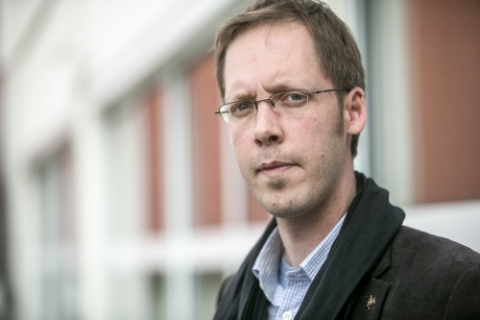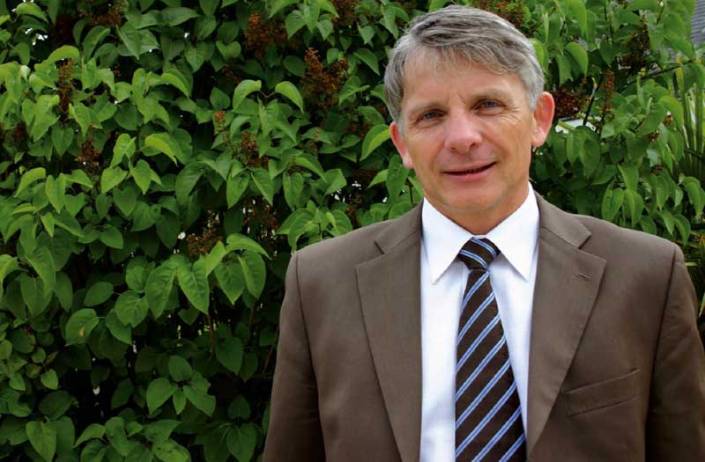Molenbeek
Dr. Pieter Van Ostaeyen: “We could have avoided the rise of ISIS”

Dr. Pieter Van Ostaeyen. DR.
Mohsen Abdelmoumen: In your book « Staat van terror, De jihadistische revolutie » you mention among others the Arab Spring and the genesis of the conflict in Syria with the emergence of different terrorist groups. In your opinion, why those who took advantage of the chaos that prevailed after the Arab Spring are the terrorist groups?
Dr. Pieter Van Ostaeyen: In countries that came out of the Arab revolutions in utter chaos (Libya, Syria) jihadi groups profited from the complete lack of control by a central government and used the anarchy and chaos to build up a support network. In Syria one cannot deny the fact that long-time, well-known, jihadists were released from al-Assad’s prisons. Remember that Assad always said he was fighting terrorists, not rebels. These jihadi’s soon took the lead over the rebellion with the current situation as a result. Lire la suite »
Dr. Pieter Van Ostaeyen : «Nous aurions pu éviter la montée de Daech»

Dr. Pieter Van Ostaeyen. DR.
English version here
Por traducir, haga clic derecho sobre el texto
Per tradurre, cliccate a destra sul testo
Um zu übersetzen, klicken Sie rechts auf den Text
Щелкните правой кнопкой мыши на тексте, чтобы перевести
Για να μεταφράσετε, κάντε δεξί κλικ στο κείμενο
Mohsen Abdelmoumen : Dans votre livre « Staat van terreur, De jihadistische revolutie » vous évoquez entre autres le printemps arabe et la genèse du conflit en Syrie avec l’émergence de différents groupes terroristes. Pourquoi, d’après vous, ceux qui ont profité du chaos qui a prévalu après le printemps arabe sont-ils les groupes terroristes ?
Dr. Pieter Van Ostaeyen : Dans les pays qui sont sortis des révolutions arabes dans le chaos absolu (Libye, Syrie), les groupes djihadistes ont profité de l’absence totale de contrôle par un gouvernement central et ont utilisé l’anarchie et le chaos pour constituer un réseau de soutien. En Syrie, on ne peut nier le fait que des djihadistes de longue date et bien connus ont été libérés des prisons d’al-Assad. Rappelez-vous qu’Assad a toujours dit qu’il combattait les terroristes, pas les rebelles. Ces djihadistes ont rapidement pris la tête de la rébellion avec pour conséquence la situation actuelle. Lire la suite »
Dr. Éric Denécé: « Following his disappointments in Syria and Iraq, Daesh will boost his terrorist action in the world »

Dr. Eric Denécé. DR.
Mohsen Abdelmoumen: Several months after the attacks that hit Paris and Brussels, do you think that Western Governments have drawn the conclusions it takes?
Dr. Éric Denécé: All the Western states believe that jihadist terrorism is the primary threat against national security and give increasing resources to the fight. But it is difficult to generalize further because the situations are different from one country to another. France, for example, is more targeted – because of its external operations – and concerned – because of the presence on its soil of an important population coming from the immigration. Except for Bulgaria, France is the country of the European Union, which has the largest number of Muslims on its soil. Now, if 95% of our compatriots are respectable and law-abiding, there is, however, a significant minority of radicalized in which recruit Daesh and Al-Qaeda. The problem takes therefore at our place a particular largeness, which is not similar, for example, in Germany or in Italy. Lire la suite »
Dr. Éric Denécé : « Suite à ses déconvenues en Syrie et en Irak, Daesh va relancer son action terroriste dans le monde »

Dr. Eric Denécé. DR.
English version here:https://mohsenabdelmoumen.wordpress.com/2016/10/01/dr-eric-denece-following-his-disappointments-in-syria-and-iraq-daesh-will-boost-his-terrorist-action-in-the-world/
Por traducir, haga clic derecho sobre el texto
Per tradurre, cliccate a destra sul testo
Um zu übersetzen, klicken Sie rechts auf den Text
Щелкните правой кнопкой мыши на тексте, чтобы перевести
Για να μεταφράσετε, κάντε δεξί κλικ στο κείμενο
Mohsen Abdelmoumen : Plusieurs mois après les attentats qui ont frappé Paris et Bruxelles, pensez-vous que les gouvernements occidentaux ont tiré les conclusions qu’il faut ?
Dr. Éric Denécé : Tous les États occidentaux sont convaincus que le terrorisme djihadiste est la première menace contre la sécurité nationale et accordent des moyens croissants à la lutte. Mais il est difficile de généraliser davantage car les situations sont différentes d’un pays à l’autre. La France, par exemple, est davantage ciblée – en raison de ses opérations extérieures – et concernée – en raison de la présence sur son sol d’une importante population issue de l’immigration. Si l’on excepte la Bulgarie, la France est le pays de l’Union européenne qui compte le plus grand nombre de musulmans sur son sol. Or, si 95% de nos compatriotes sont tout à fait respectables et respectueux des lois, il existe toutefois une importante minorité radicalisée dans laquelle recrutent Daesh et Al-Qaïda. Le problème connait donc chez nous une ampleur particulière, qui n’est pas comparable, par exemple, à l’Allemagne ou à l’Italie. Lire la suite »
Professor Simon Petermann: « Belgium remains a target for the jihadists »

Pr. Simon Petermann. DR.
Mohsen Abdelmoumen: Were the Brussels terrorist attacks of this March 22nd predictable?
Professor Simon Petermann: Unfortunately, I think that these attacks were predictable. So far, Belgium is regarded by jihadists as a fallback basis with its huge Muslim population, mostly of North African origin (in Molenbeek a lot of Muslims are from the Rif region in Morocco), grouped or ghettoized in some areas of large cities (Brussels, Antwerp, etc.). A minority of youngsters, mostly born in Belgium, frustrated and resentful against our society for many reasons, are receptive to radical ideas. Lire la suite »
Le Professeur Simon Petermann : « La Belgique reste une cible pour les terroristes »

Le Professeur Simon Petermann. DR.
English version here:https://mohsenabdelmoumen.wordpress.com/2016/03/28/professor-simon-petermann-belgium-remains-a-target-for-the-jihadists/
por traducir, haga clic derecho sobre el texto
per tradurre, cliccate a destra sul testo
щелкните правой кнопкой мыши на тексте, чтобы перевести
Για να μεταφράσετε, κάντε δεξί κλικ στο κείμενο
Mohsen Abdelmoumen : Les attentats de Bruxelles de ce 22 mars étaient-il prévisibles?
Pr. Simon Petermann : Je pense malheureusement que ces attentats étaient prévisibles. Depuis longtemps, la Belgique avec sa population musulmane d’origine nord-africaine et turque parfois importante et concentrée dans certaines villes (Bruxelles, Anvers, Verviers, etc.), est une zone de repli pour les djihadistes. Comme ces populations de condition souvent modeste se sont regroupées dans les mêmes quartiers, elles sont devenues la cible privilégiée de prédicateurs salafistes, souvent venus de pays étrangers. Lire la suite »
Professor Simon Petermann: « In Belgium, when we talk of some countries and Algeria, there is a kind of taboo »

Professor Simon Petermann. DR.
Mohsen Abdelmoumen: With the terrorist attacks that shook Paris and most of the perpetrators are Belgian origin, do not you think that Belgium has become a hub of terrorism in Europe and the world?
Prof. Simon Petermann: I hesitate to use the term « hub ». Belgium is undoubtedly a fallback area, because it is a small country that can readily cross with a fairly large North African community, and recent attacks that occurred in Paris and those which occurred also in Belgium show that indeed Belgium is somewhere a fallback area where jihadist cells are active. Lire la suite »

Vous devez être connecté pour poster un commentaire.